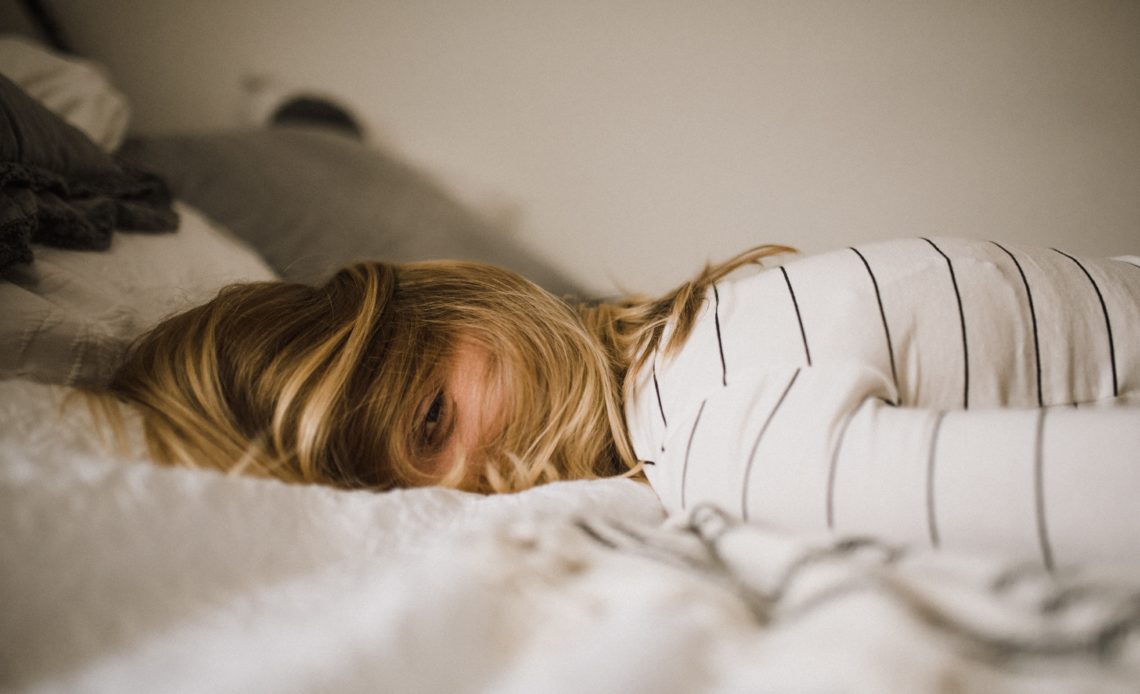
Ashwagandha is an herbal supplement traditionally used for a wide range of ailments. Today, ashwagandha mainly treats anxiety-related conditions – however, sleep improvement is its second most popular use, as the same properties that make it so good at reducing anxiety also make ashwagandha a powerful sleep supplement.
Ashwagandha For Sleep
Human studies have rarely tested the benefits of ashwagandha for sleep. Most are rodent studies, and the results so far show promise. One mouse study found that ashwagandha improved both sleep latency (falling asleep faster) and quality (deeper sleep) as it activates calming GABA receptors in the brain.
Other studies have accidentally found ashwagandha benefits for sleep. One study, for instance, found low doses of ashwagandha improved rat libido, but higher doses made the rats sleepier.
Human studies that have directly measured sleep effects have not found results comparable to rodent studies. This may be due to their low quality as they lack blinding, or because they combine ashwagandha with other supplements, which confound results. They also often use excessive dosages, equivalent to more than a gram of the usual 5% withanolide extract.
That said, studies where subjects took ashwagandha throughout the day tended to note that a significant portion of subjects reported improved sleep, despite that not being the point of the study.
More recently, a study did directly explore sleep effects, and subjects suffering from anxiety who took 300 mg of ashwagandha extract twice a day saw significant and consistent improvements in multiple sleep parameters.
There’s also widespread anecdotal evidence. Users usually report improvements in sleep, and this is most consistent when they also had anxiety to begin with, i.e. if anxiety was one of the things stopping them from sleeping.
Can You Take Ashwagandha At Night? When To Take Ashwagandha For Sleep
Again, as studies are limited, we mostly have to go off anecdotes here. For taking ashwagandha at night, users report a range of optimal times, from thirty minutes to four hours before bed, for sleep induction. It depends on how full your stomach is (any supplement will take effect more slowly on a full stomach) and your metabolism, etc.
Also, the best time to take ashwagandha for sleep depends on your intended effect. We recommend taking it earlier for sleep induction, but later for preventing waking in the middle of the night. Some people may also find the anxiolytic effects helpful in the evening and want to take it several hours before bed to help them wind down.
The one high-quality human sleep study used twice a day dosing, morning and evening, for people with both insomnia and anxiety.
The bottom line: take your dose shortly before bed if it’s mainly for staying asleep, and earlier if it’s for falling asleep. If you have anxiety in the evening, take a dose fairly early – perhaps before dinner – to help you wind down. If you have all-day anxiety and insomnia, try twice a day dosing.
How Much Ashwagandha For Sleep?
Bear in mind that ashwagandha is usually made as a 5% withanolide extract, and our recommendations will assume that this is what you’re using. Dosing is meaningless without knowing the extract ratio, so if you’re taking KSM-66 ashwagandha keep aware that this may be slightly stronger.
That said, the ashwagandha dose for sleep is usually 300-400 mg of extract taken in the evening. Some people go as low as 200 mg. In general, the earlier you take ashwagandha in the evening, the higher you’d go on dosage to make it last through the night.
If you’re dosing twice a day, morning and evening, you’d use a slightly higher dosage but divide it into 200-300mg, twice a day, for 400-600mg total.
More is not better. In fact, if ashwagandha doesn’t work for you, it may actually work better if you use less, and you should always try using less before using more.
Can Ashwagandha Cause Insomnia?
Paradoxically, a small number of users report that ashwagandha causes insomnia. How can this be if it acts as an anxiolytic and GABA agonist?
Studies have never found insomnia, but one study offers a clue as to the mechanism. Ashwagandha at 600 mg daily produced a large increase in thyroid hormones T4 and T3, and a similarly large decrease in thyroid stimulating hormone.
If ashwagandha causes insomnia and makes you feel hot, this is very likely what’s happening.
Another possibility might be some kind of rebound effect as ashwagandha wears off, making you wake during the night.
In either case, the thing to do is lower the dosage and perhaps also take it a bit earlier in the evening. If that still doesn’t fix the issue, it’s time to try a different sleep aid.
Since you’ve made it this far, perhaps you’re looking to dive in and buy some ashwagandha. If that’s the case, you’re in luck! Check out our:
- recommendations for the best ashwagandha tea
- reviews of ashwagandha products with a high amount of withanolides
- discussion of the benefits of ashwagandha for men
Photo by Kinga Cichewicz on Unsplash